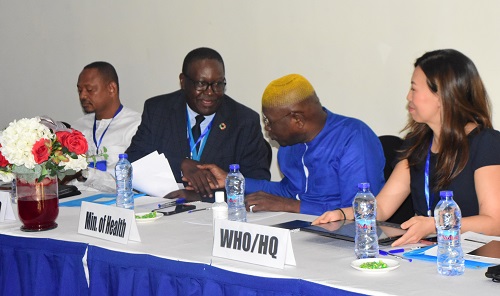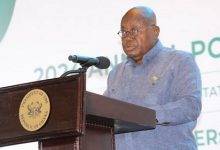
The African region is projected to have about 5.3 million health worker shortage by 2030, the World Health Organisation (WHO) has said.
It said the high attrition of skilled health workforce from the region to ‘developed’ countries in recent times not only threatened health security but socio-economic development on the region.
Dr Francis Kasolo, the WHO Country Representative, who made this known, challenged African governments to prioritise health in their public budgeting to increase investment in health workforce.
He was speaking at the opening of a three-day regional dialogue on investment and protection of healthcare workers in Africa, in Accra yesterday.
The meeting which brought together representatives from member states, sub-regional bodies, investors and partners among others, is to determine key health workforce investment principles and opportunities to tackle the growing brain drain.
Dr Kasolo stressed that there was ample evidence to suggest that investing in health workforce could accelerate Universal Health Coverage (UHC), strengthen health security, equity and women and youth empowerment.
“Investing in health workforce will protect vulnerable populations from the shocks of current crisis and improve health access. There is a convergence in the interests and timing of key stakeholders on health workforce investments and actions. The cost of inaction is unaffordable.”
A Deputy Minister of Health, Alhaji Mahama Asei Seini, in a speech admitted the brain drain within Ghana’s health sector despite efforts by government to employ and improve conditions of service for workers.
It is in view of this that the Ministry, he said, had reviewed its human resource policy and strategy to improve the availability and equitable distribution of healthcare workers across the country while ensuring their retention to attain UHC and goal three of the Sustainable Development Goals (SDGs).
“There indeed cannot be a better time to invest in health workforce and exploring the training pipeline of doctors, supply and willingness to work and need for doctors and other health staff based on the country’s disease burden cannot be overemphasised,” he stated.
Africa bears 25 per cent the world’s disease burden but has only 3 per cent of the world’s workforce to address this.
The WHO estimates that the region has 1.5 health workers (physicians, nurses and midwives) for every1,000 people – far below its threshold of 4.45 health workers per 1000 people needed to deliver essential health services.
A report published by the United Kingdom Nurses and Midwifery Council states that between April 2021 and March 2022, a total of 23,444 people trained outside the UK joined its register for the first time.
That is 13,482 (135 per cent increase) more than the number who joined the previous year with relatively 2,000 foreign trained workers joining the UK health force every month.
In the case of Ghana, a 2021 report from the House of Commons in the United Kingdom reveals that there are more health professionals of Ghanaian origin working for the National Health Service (NHS-UK) than in Ghana.
It said a total of 3,395 healthcare workers from Ghana migrated to work in the UK since the beginning of this year, which is against 3,236 that left the shores of Ghana for the European country the previous year.
BY ABIGAIL ANNOH







